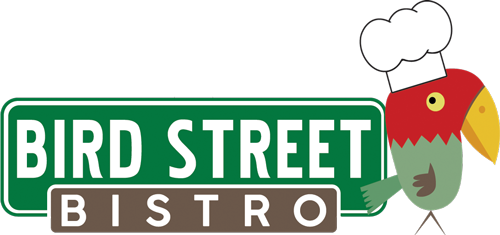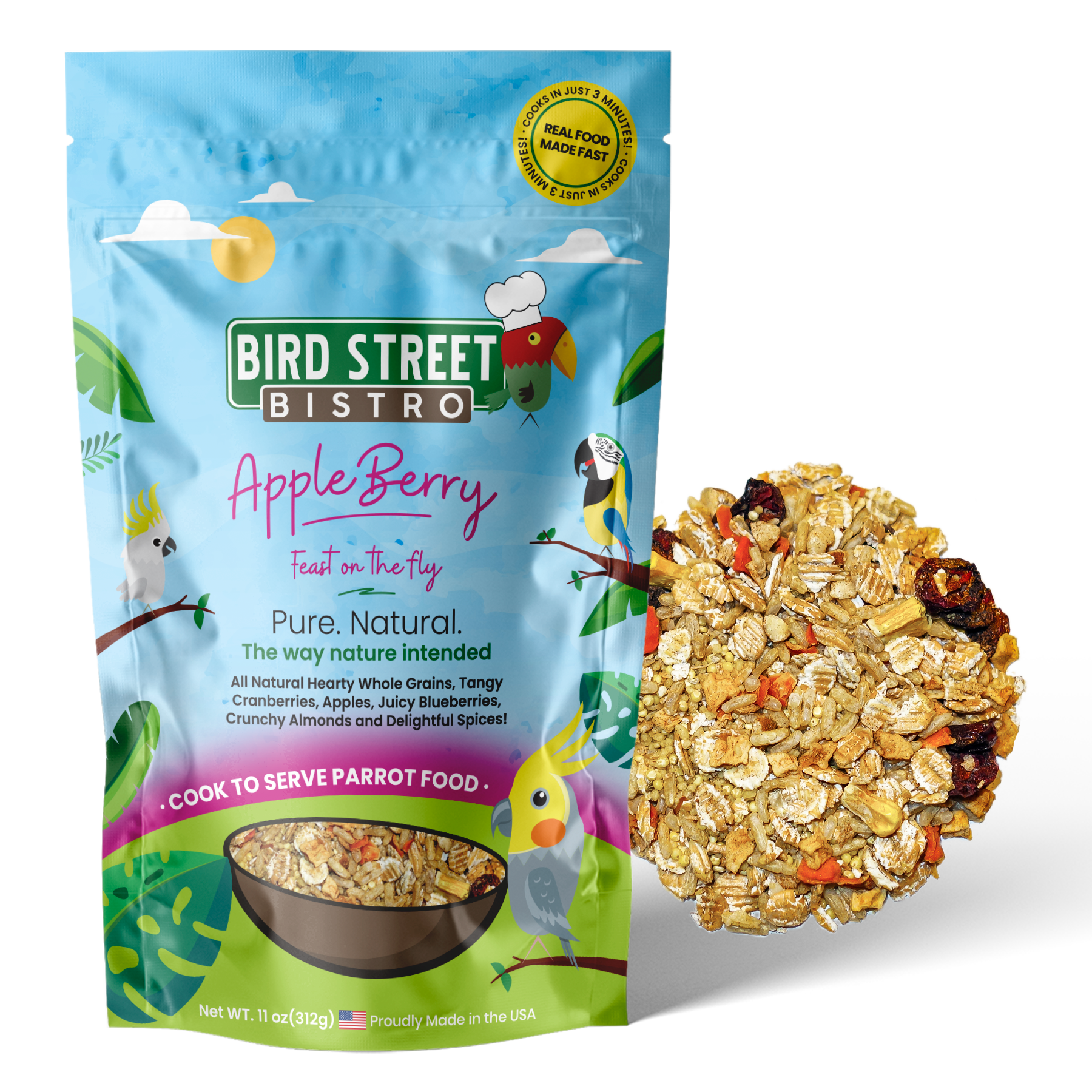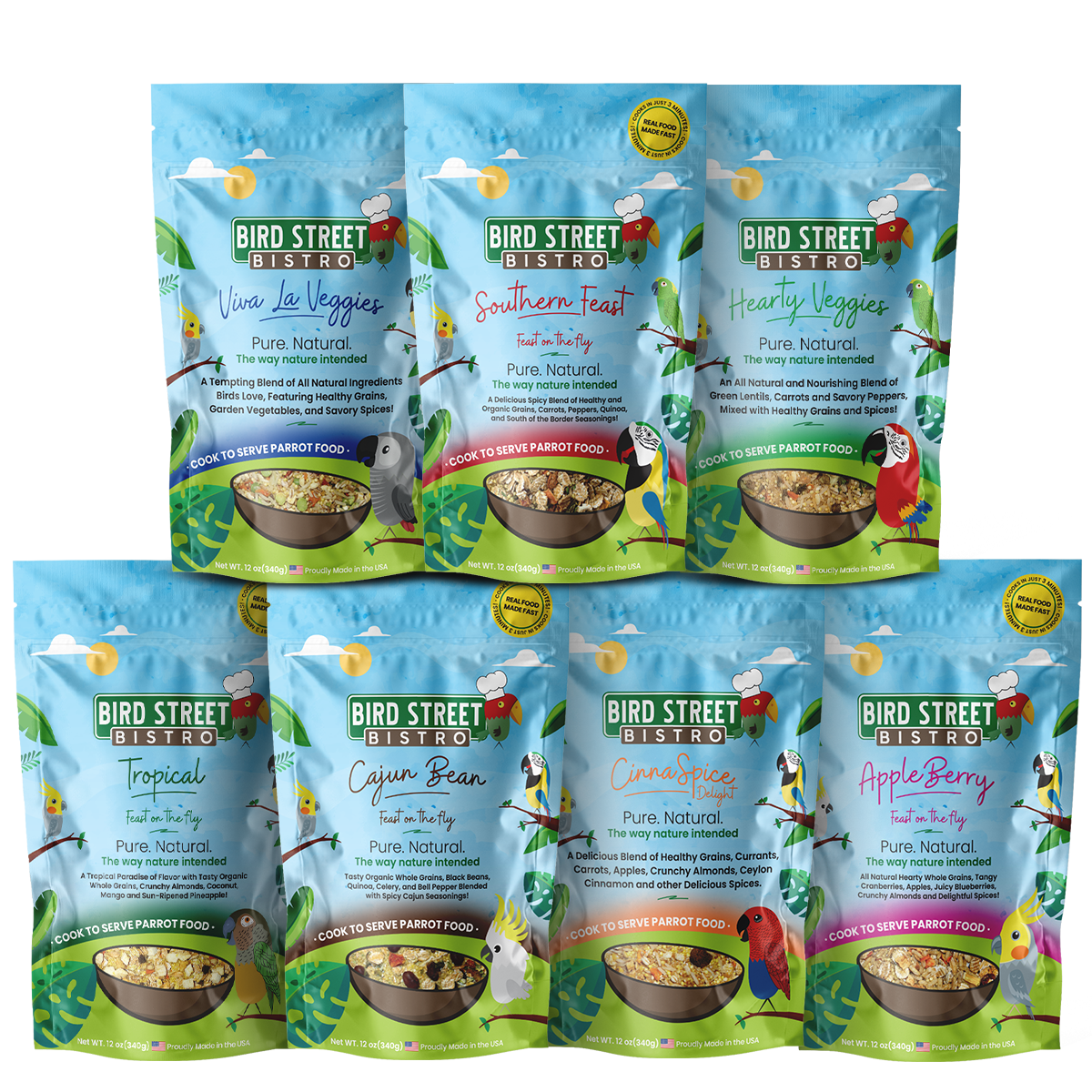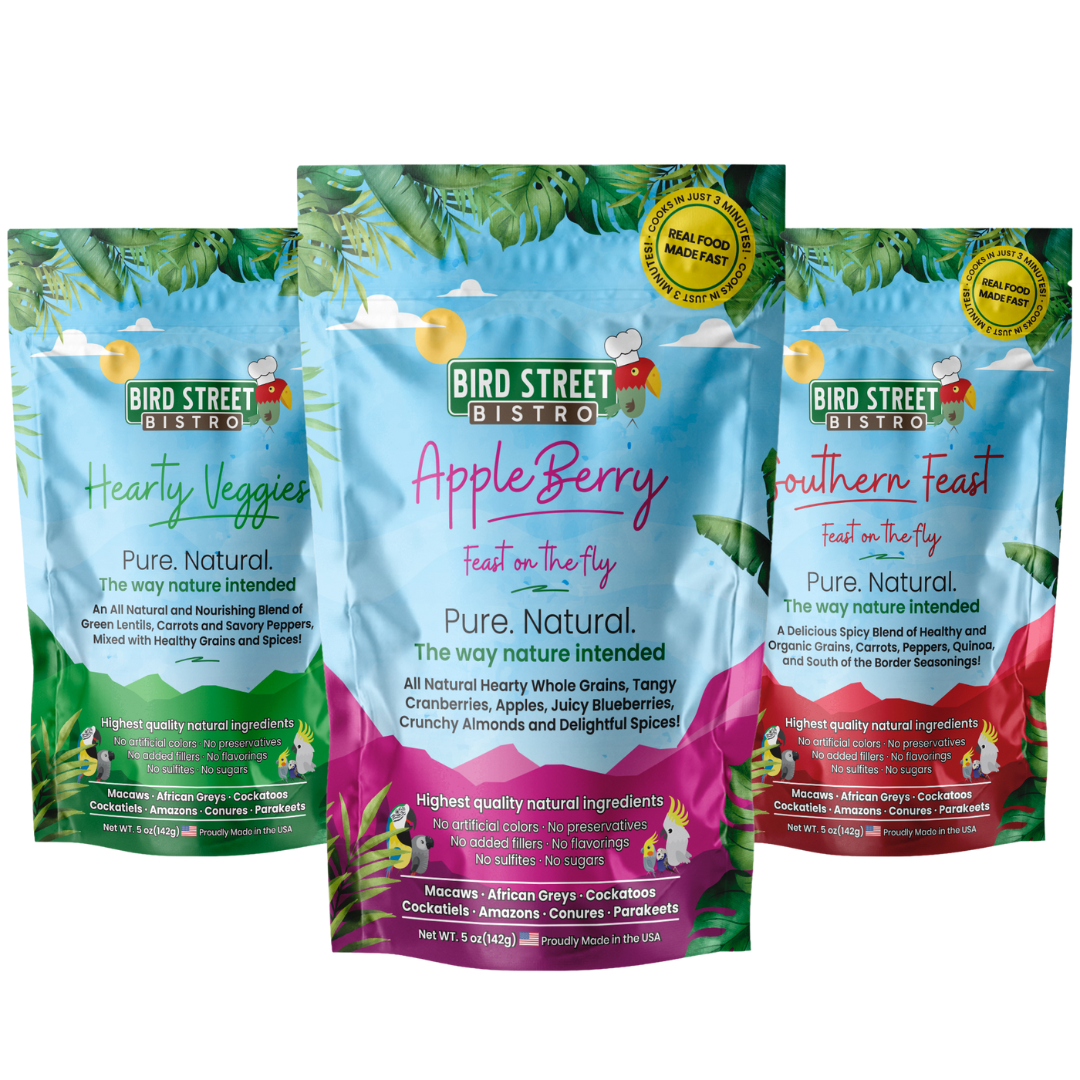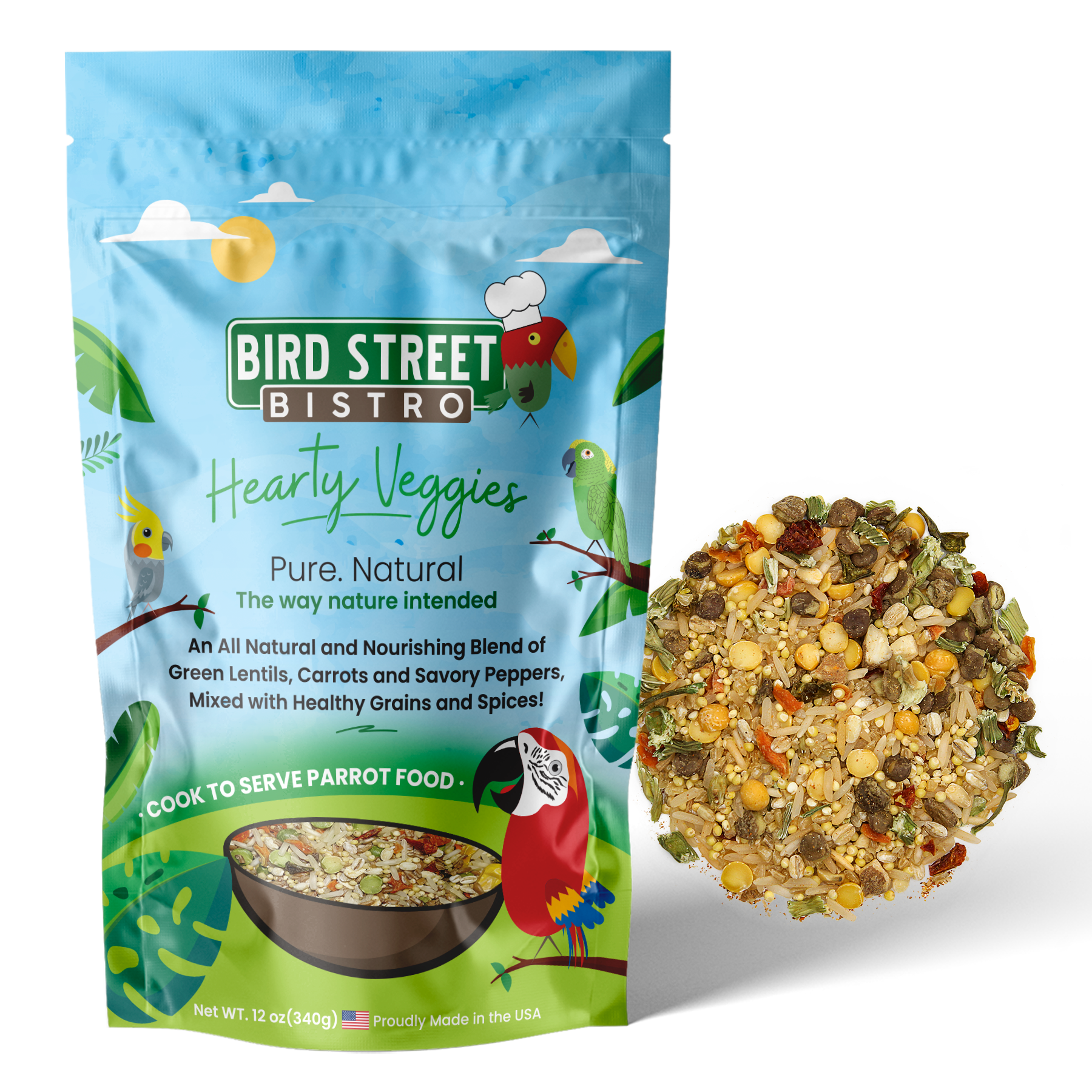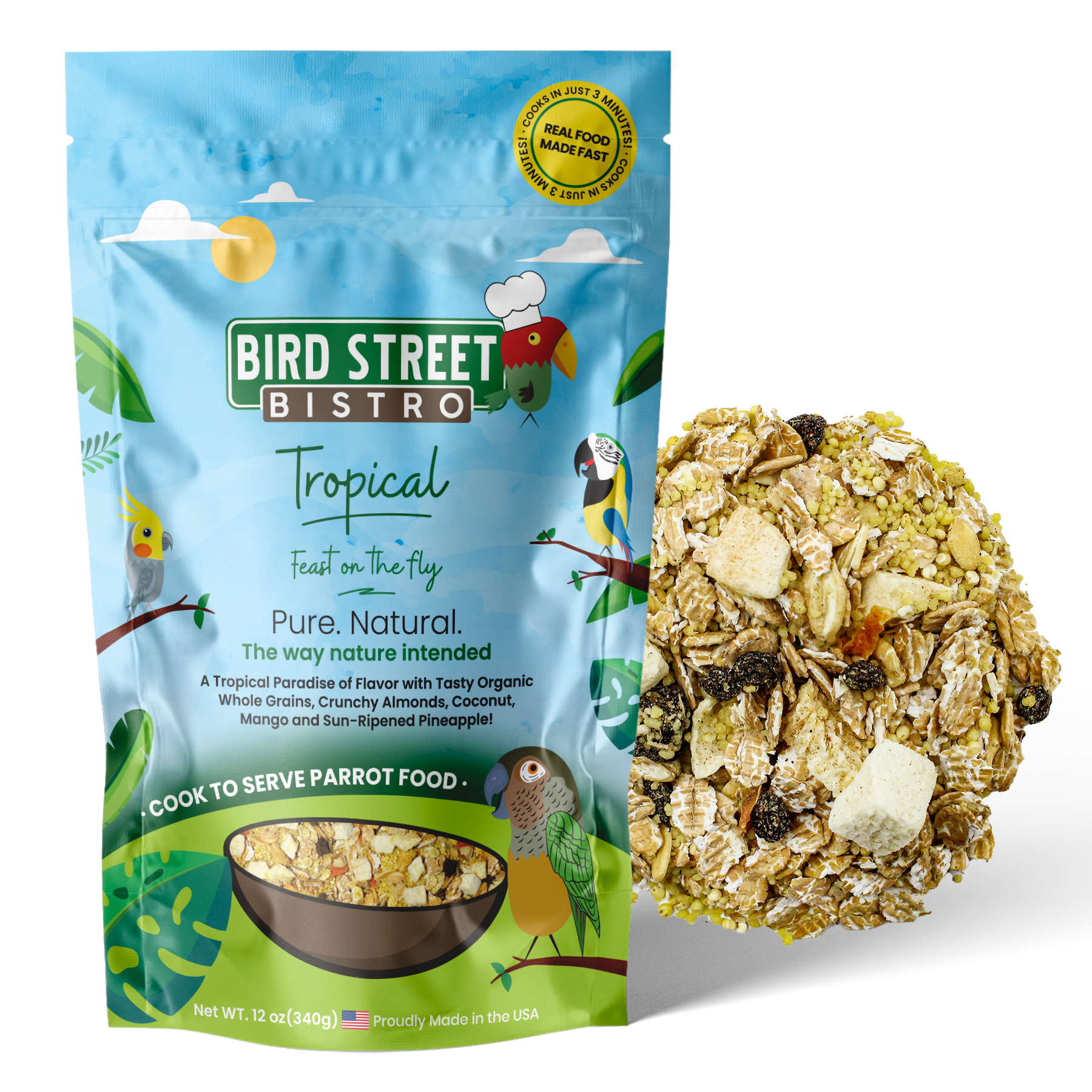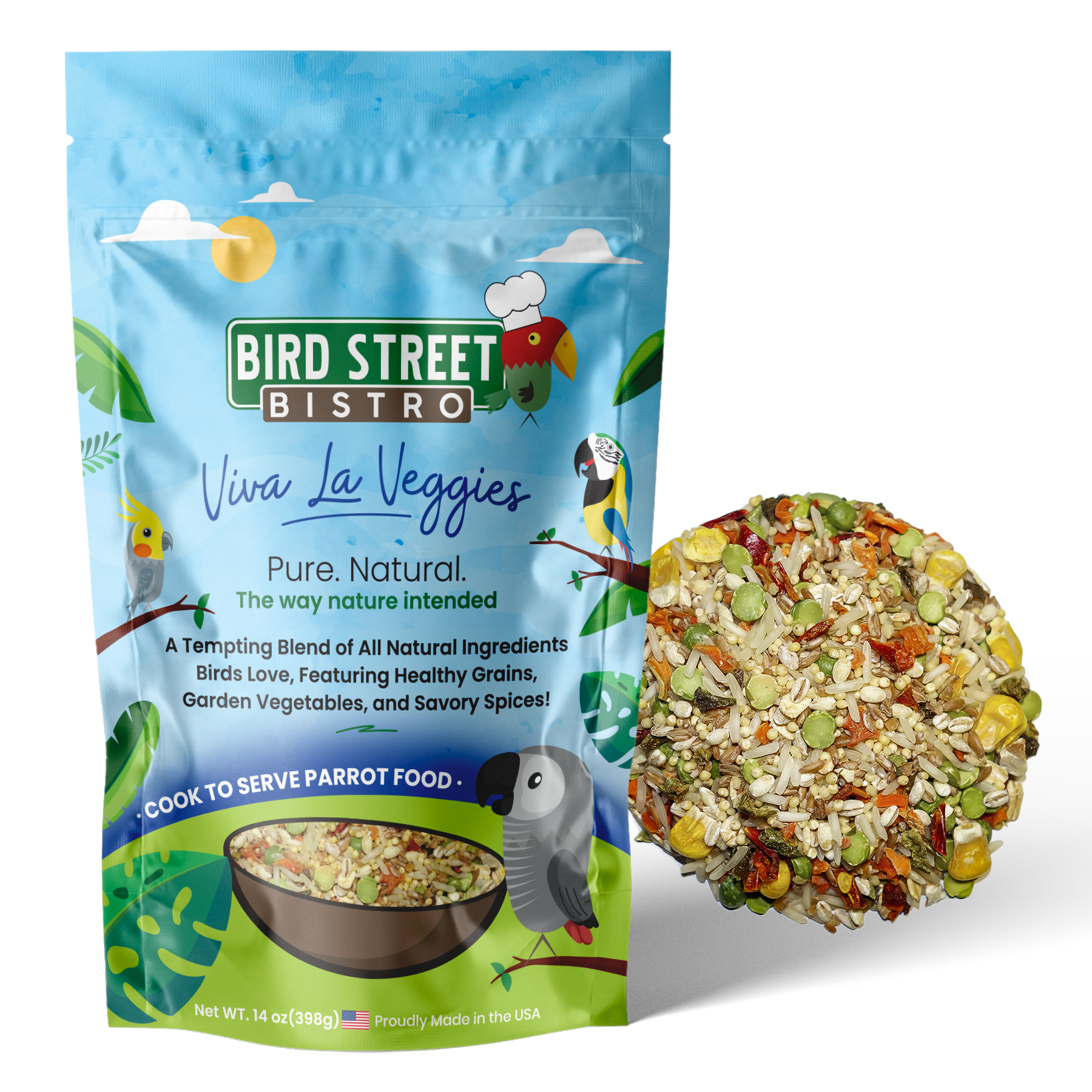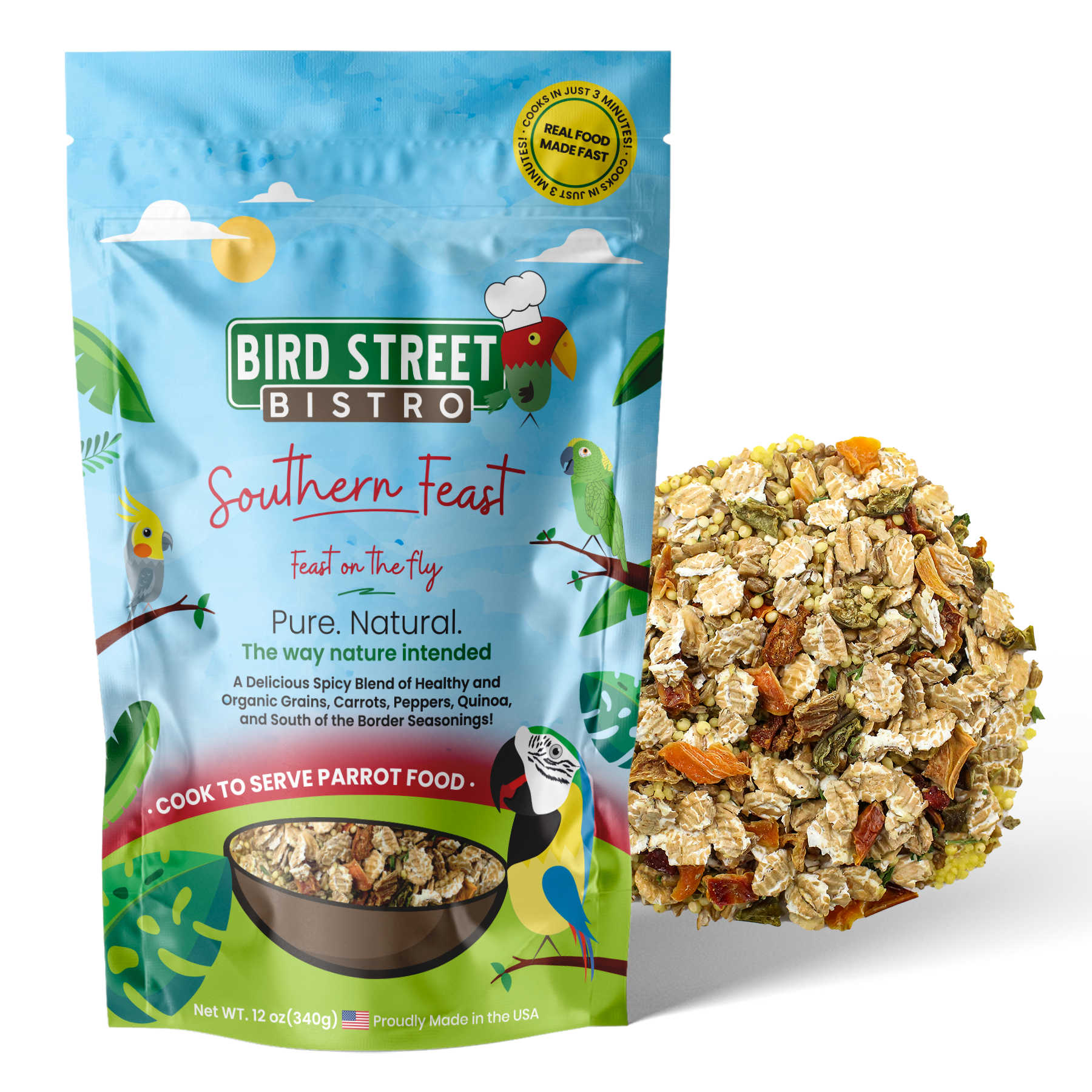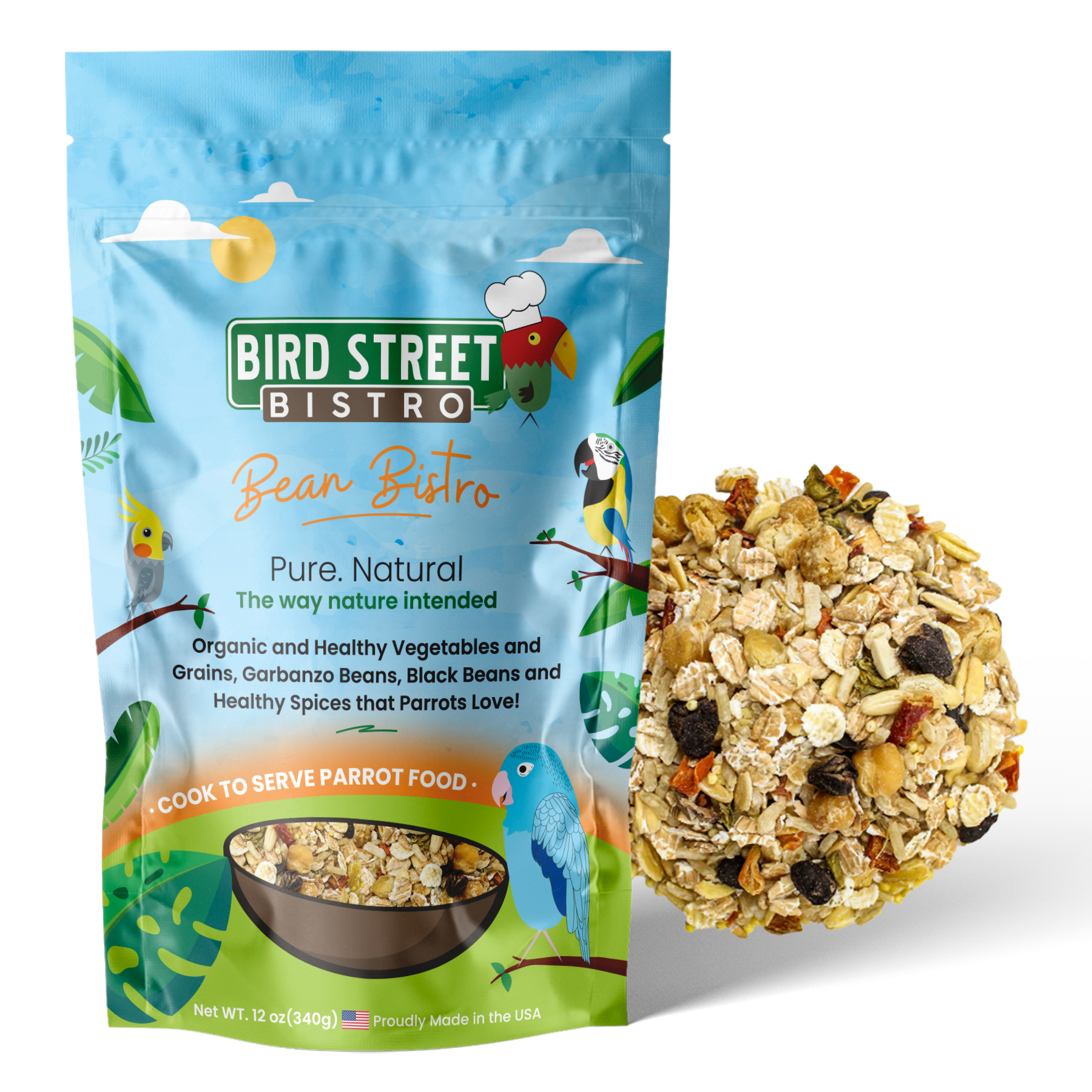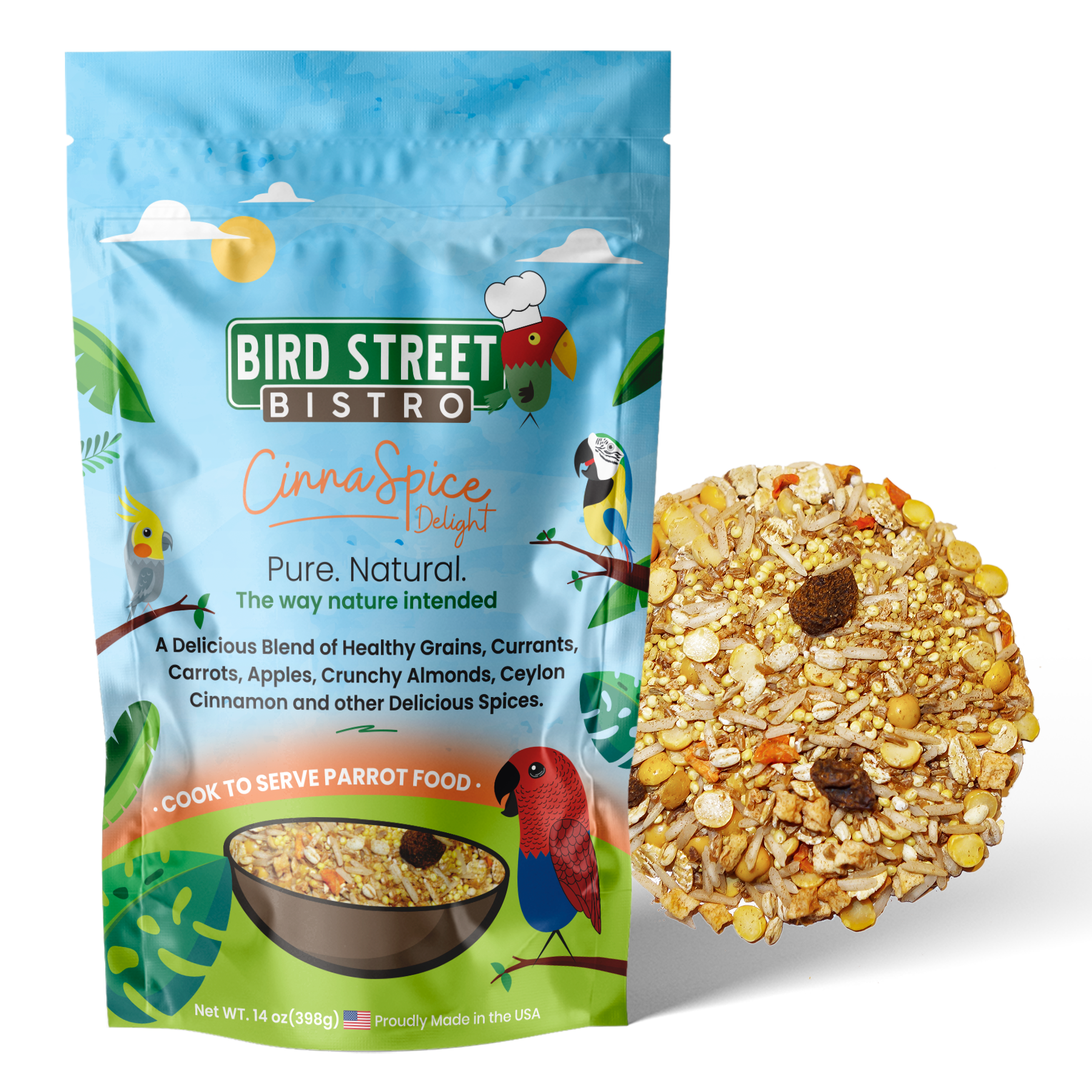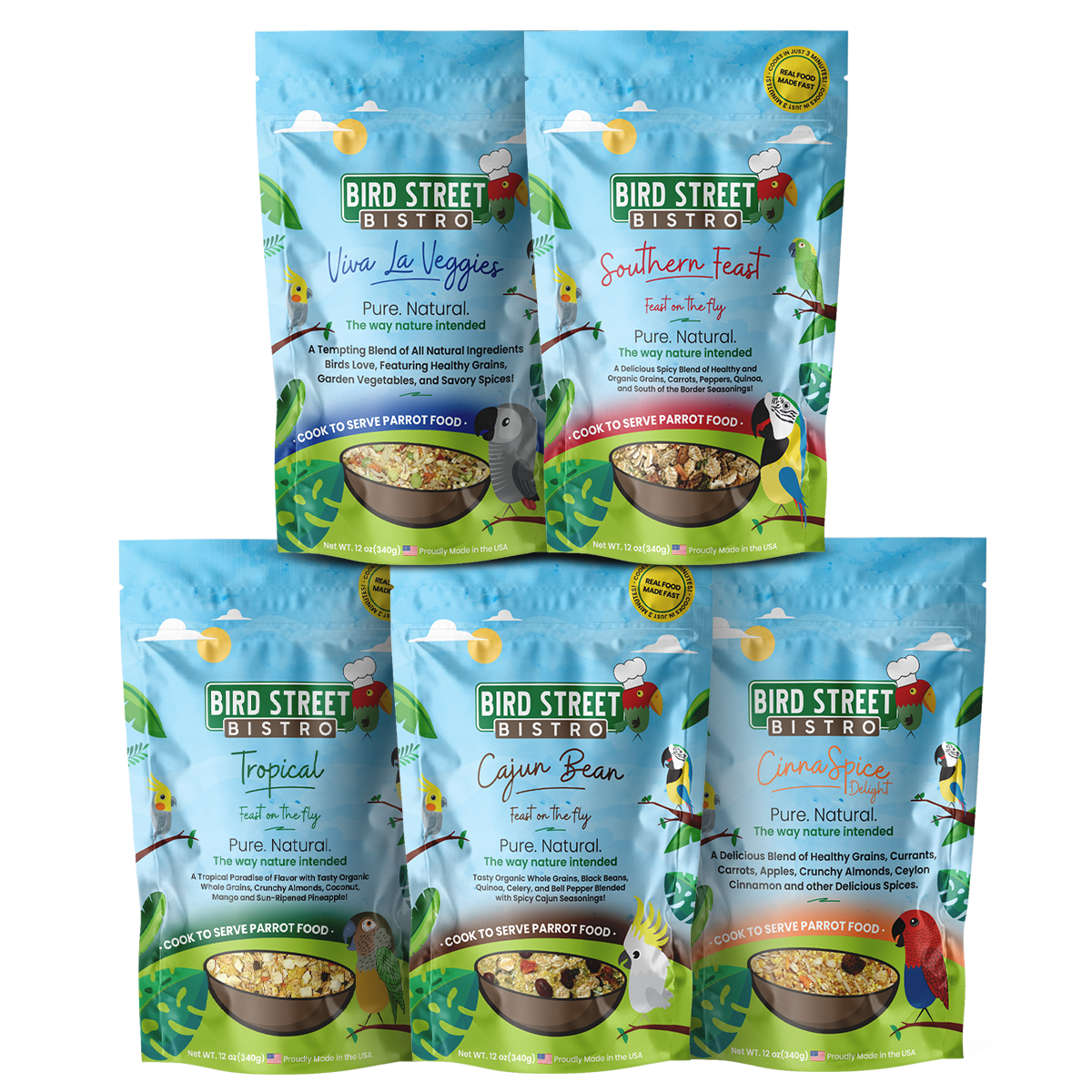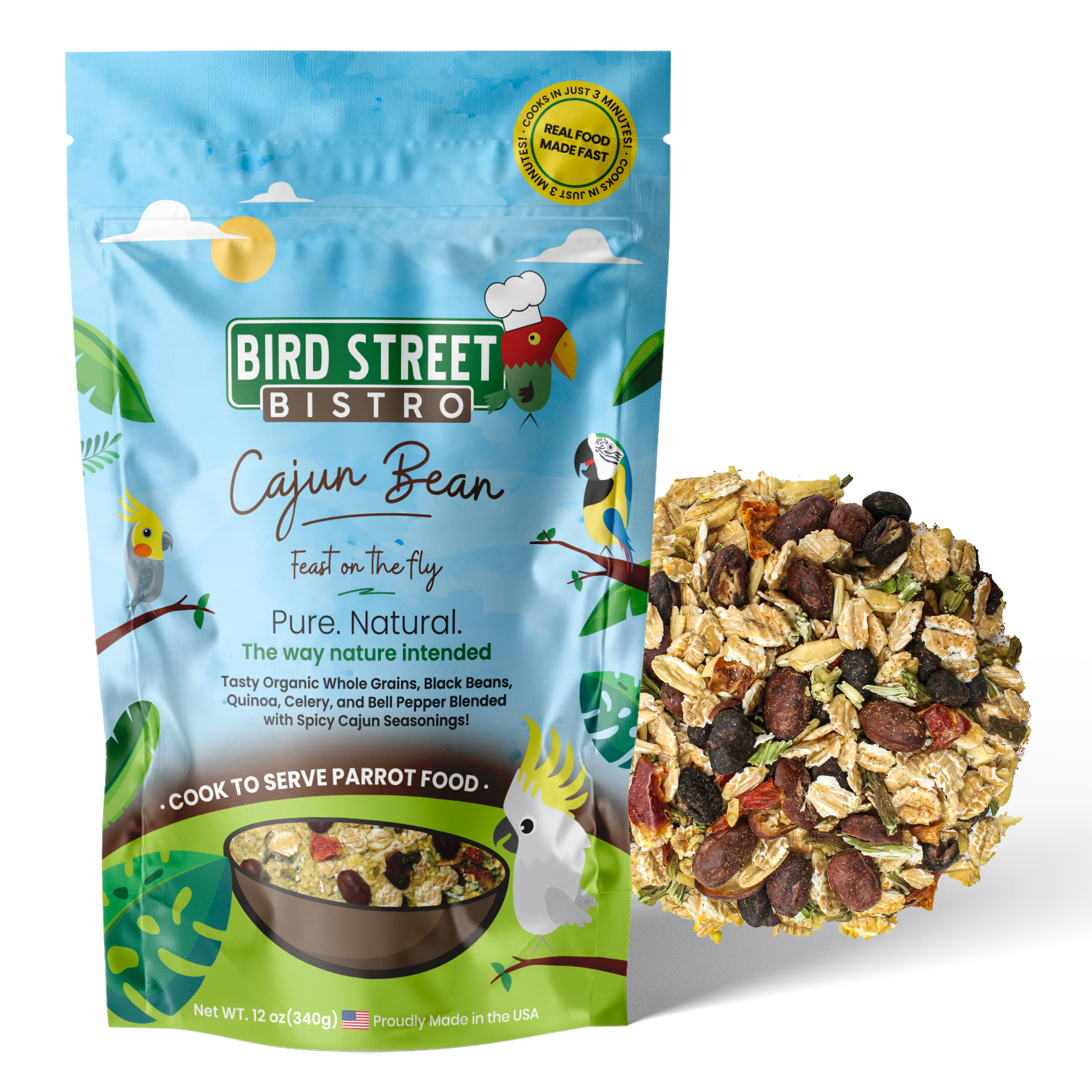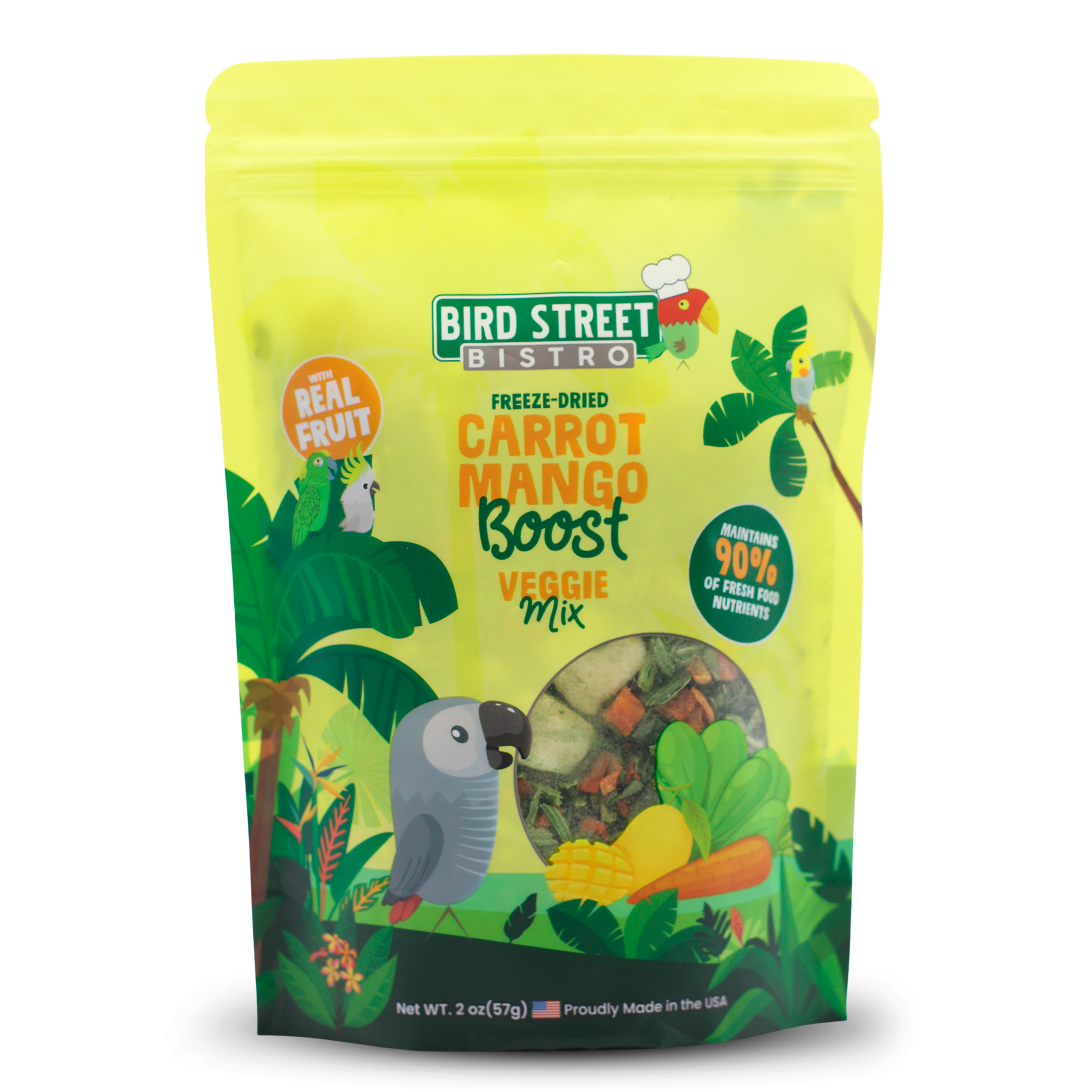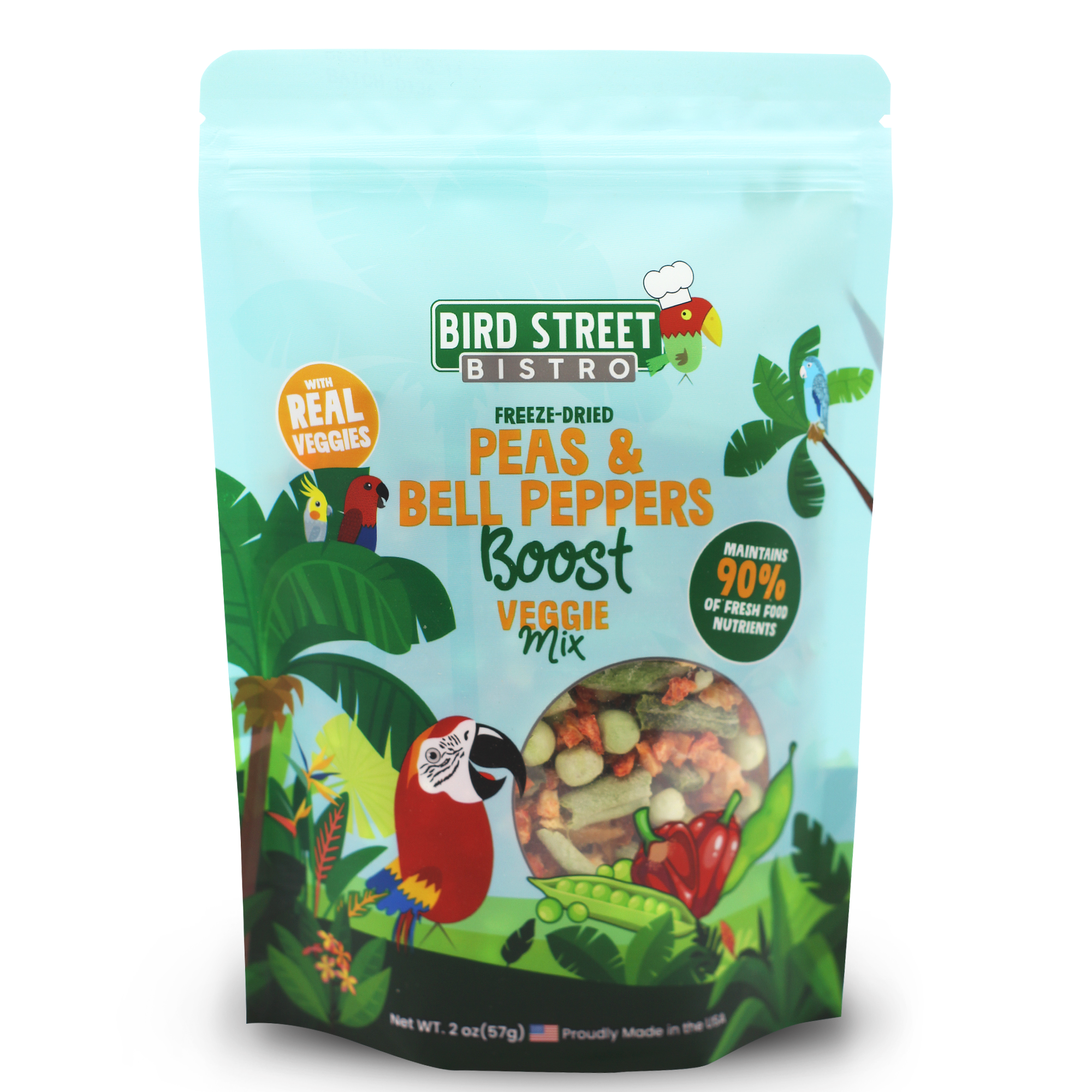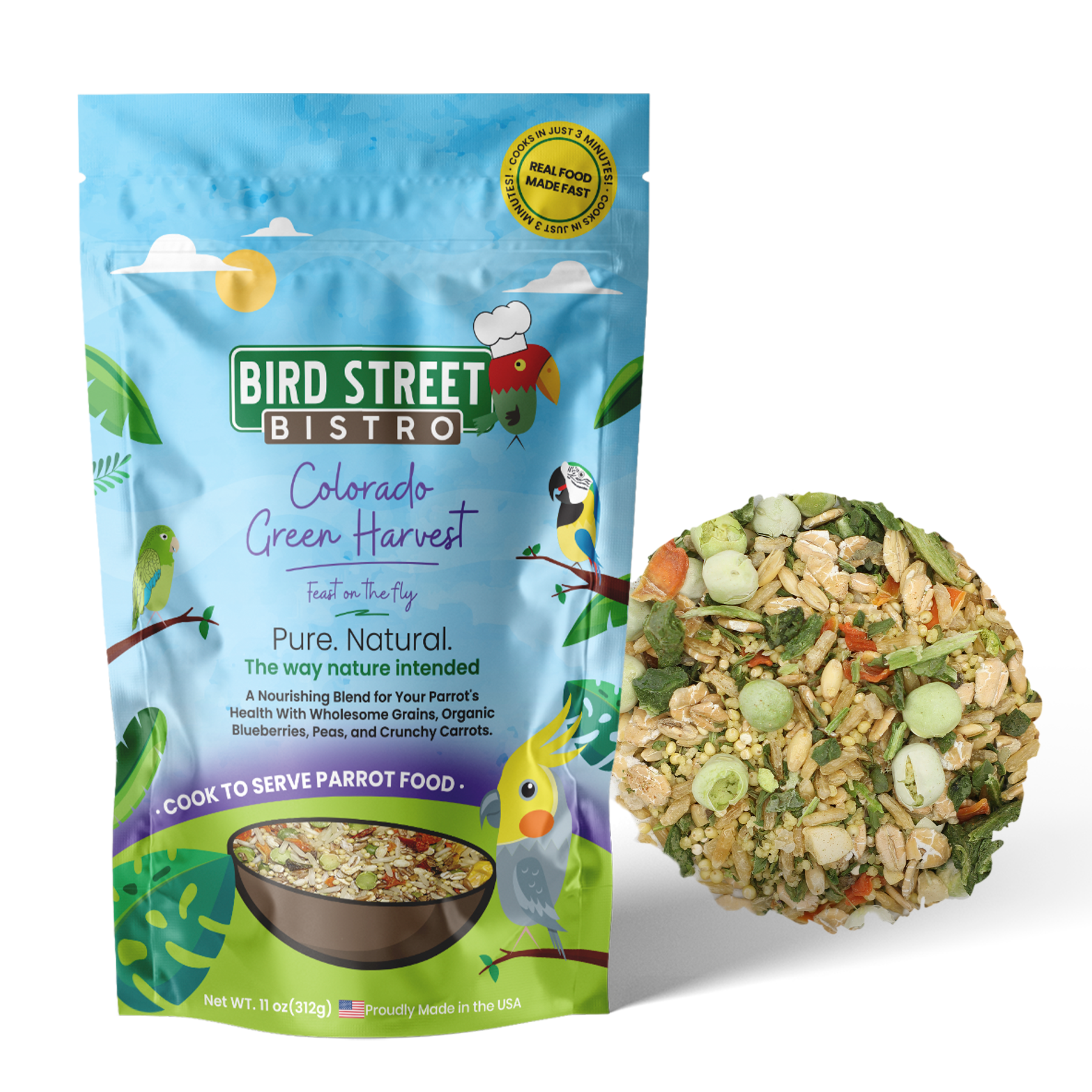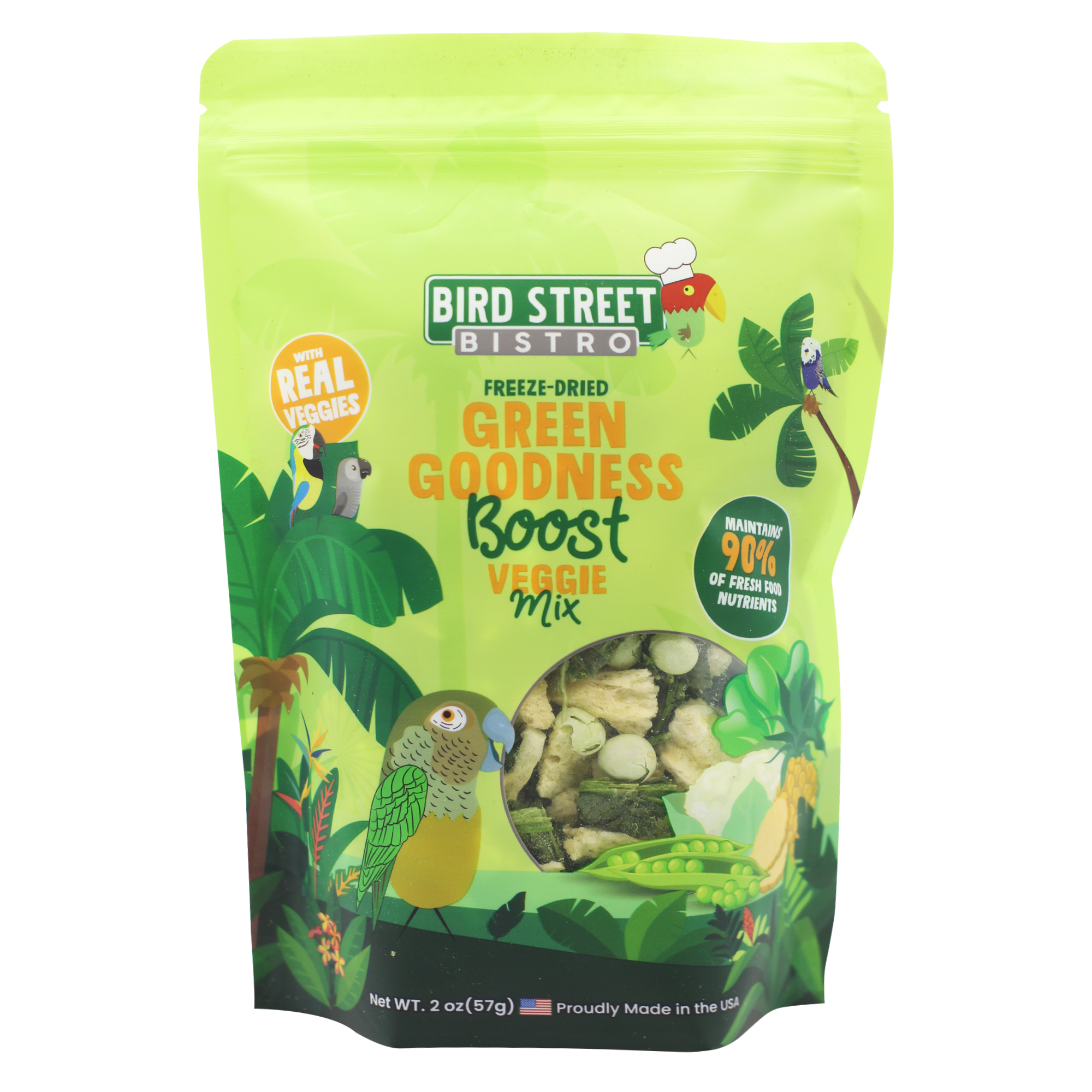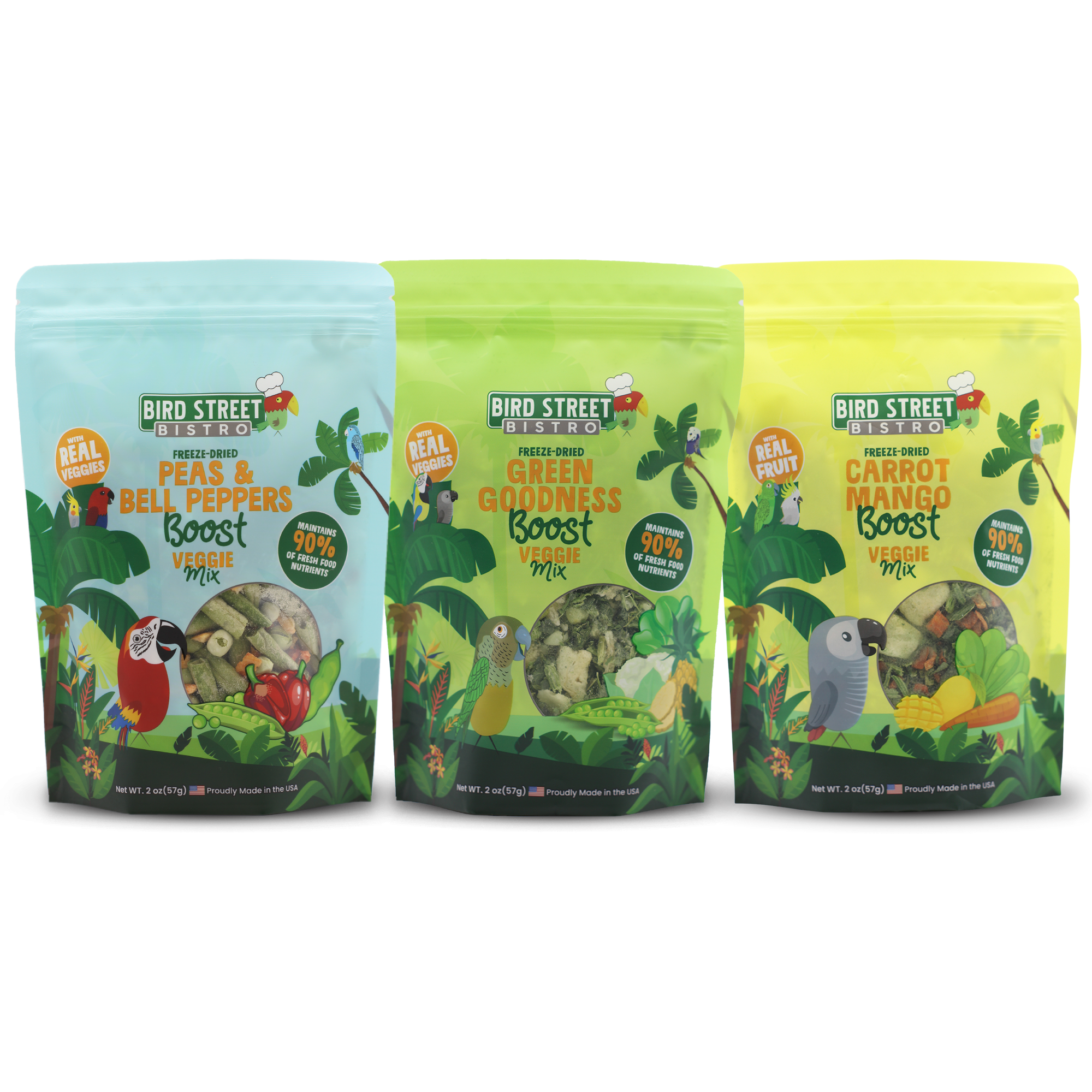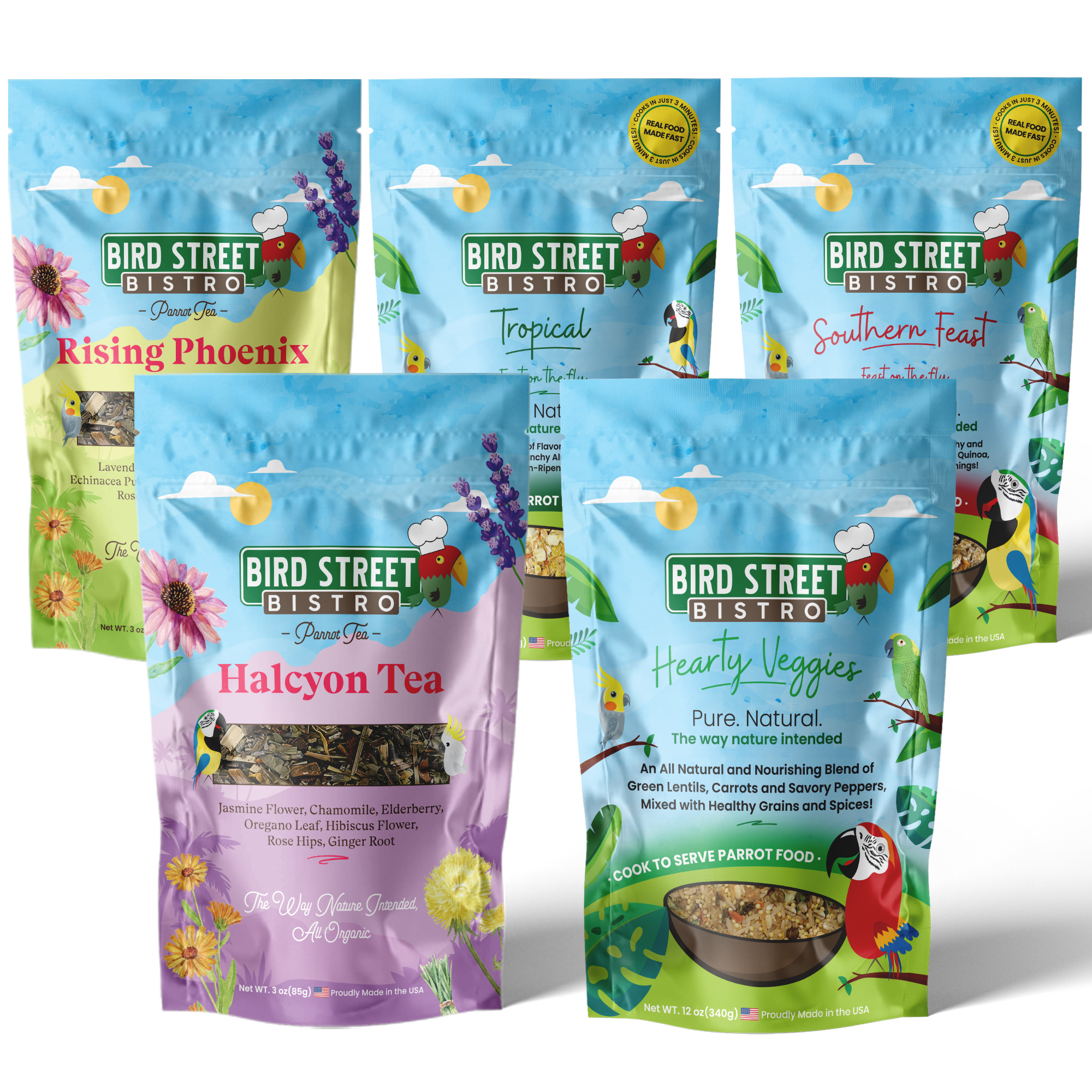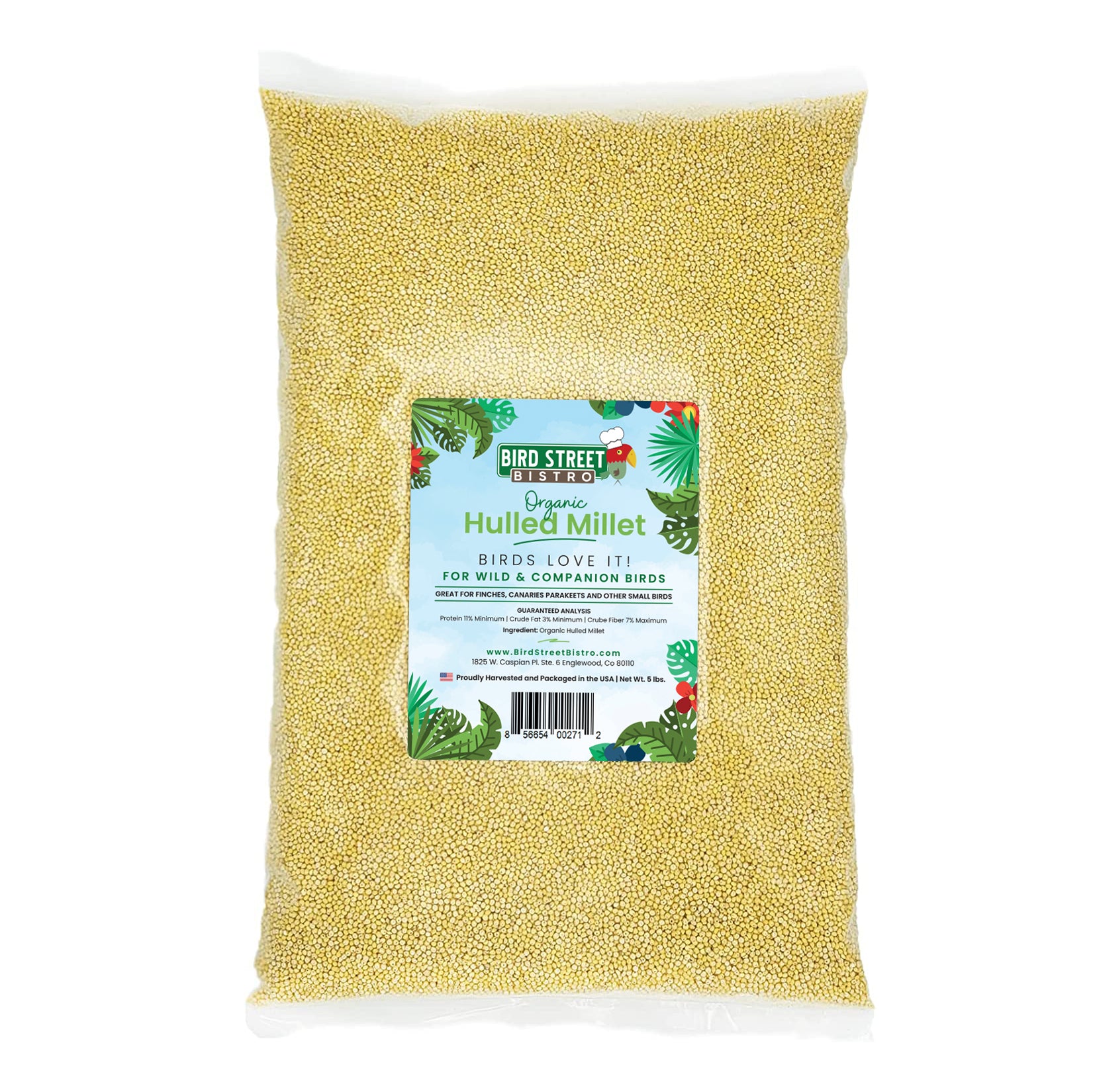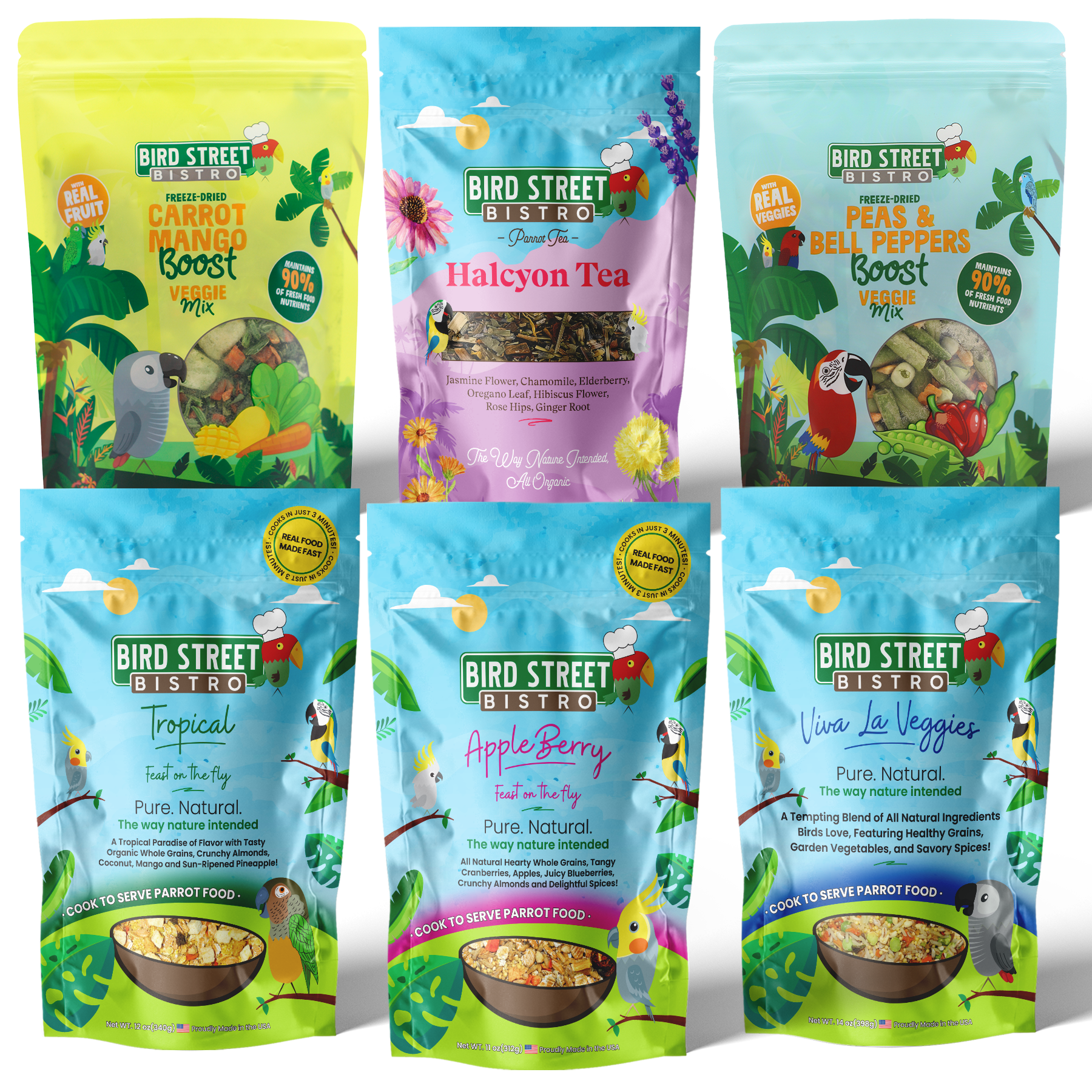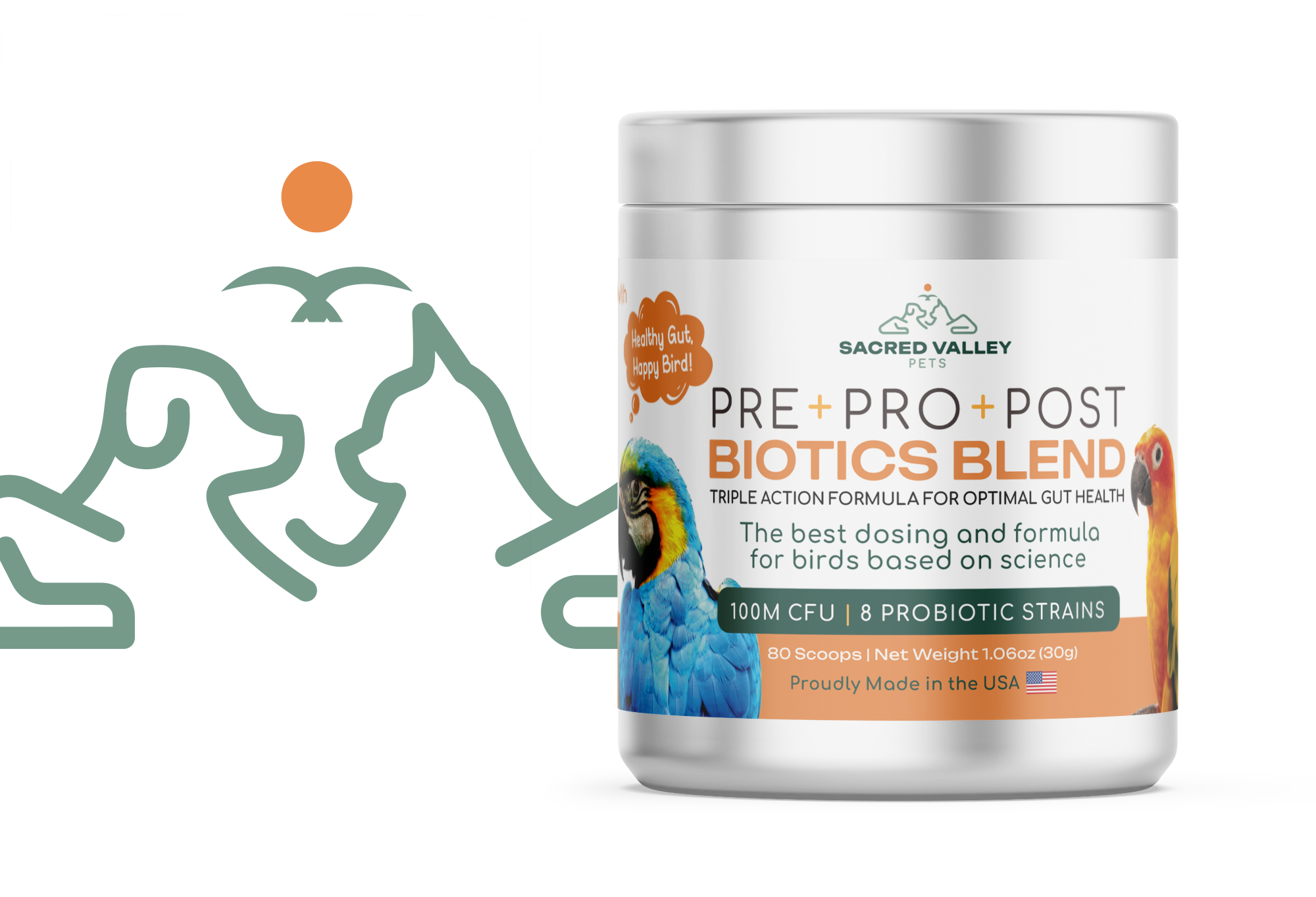The Conure Food You Can Trust
You may notice that conures can vary quite a bit in size as you research this specific variety of parrot. Conures can range in size from about 10 inches to 20 inches. They are easily identifiable by their long tail feathers and distinctive eye-rings. These beauties are native to South America. Wild conures can often be found in savannas, forests and palm groves throughout Brazil, Guyana, Paraguay, Venezuela, Argentina, and Chile. This means that they are used to eating varied, rich diets full of natural berries and roughage.

Should I be concerned about what my conure eats?
Diet is going to be the key to your conure’s happiness, health, and longevity. A conure can live for up to 35 years if it enjoys an ideal lifestyle and diet. Conures are slightly prone to obesity. That means you’re going to have to be vigilant about offering balance. Besides, it is known that conures are more likely to suffer from deficiencies in vitamin A and calcium than other birds. A conure needs and craves a well-balanced, varied diet. Consistency is important. The playful, comedic personality of your conure may trick you into thinking that you’re making your bird happy by feeding it treats and table food. However, you are just providing some short-term fun that can create very poor long-term results.
You’re probably going to bump into the temptation to feed your conure a seed-heavy diet pretty early on. What could be wrong with filling food that your conure seems to love? The reality is that an all-seed diet can lead to a sluggish, miserable bird pretty quickly. Dr. Vanessa Rolfe shares this regarding seed diets:

"Seventy to 80 percent of the problems I treat in birds are due directly or indirectly to inadequate diets. Seeds are high in fat and deficient in many other nutrients, including amino acids, vitamins, and minerals. An all-seed diet can be associated with a long list of medical problems."
What exactly does my conure naturally eat?
Let your mind wander to a scene of a lush, green South American forest that is covered by a light mist and canopy of trees. The ancestors of your little conure would have been playfully dancing on knotty branches high above the ground with things like berries, seeds and tropical vegetation in their beaks. Your goal is to provide a diet that is as close to this as possible.
Of course, you’re going to have limitations because you don’t live in a forest! The good news is that you can recreate a natural diet using varied, nutrient-dense foods that are made especially for conures. One thing that is important to realize is that your pet conure doesn’t need the same menu that a wild bird would need to thrive. It is important to focus on finding pet bird food for a non-wild bird to ensure that your conure is getting the right mix.

The big difference between a wild and non-wild bird is that a non-wild bird needs far less fat and sugar! A bird in the wild would be constantly moving and foraging for food. Even a playful, curious pet conure who’s on the move quite a bit could never match the activity level of a wild conure. Unfortunately, the seeds that we feed our birds as part of the American diet offer much less nutrition than the wild seeds they’d be nibbling on in the wild.
The problem with an all-pellet diet
An all-pellet diet can be disastrous for a conure. This type of diet can box your conure in on a dietary level. A pellet diet is simply too uniform and free from variety to offer what conures need to thrive and stave off harmful health conditions. The real hidden danger of an all-pellet diet is that it deprives your conure of the ability to satisfy its foraging instinct. This is no small thing.
Foraging plays a key role in keeping conure content and stimulated. All parrots flourish when they are free to pick through food to undress seeds from husks. A manufactured pellet provides no opportunity for foraging. You might call pellet nutrition without a soul. The bad news is that birds often display a variety of behavioral issues after being forced to consist of all-pellet diets. Vitamin D and iron toxicities are also common with all-pellet diets.
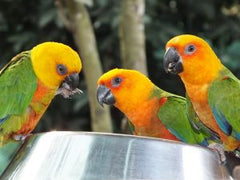
Many bird owners unknowingly compromise the health of their beloved companions by providing them with all-pellet diets. Pellets can seem attractive to busy pet owners because they are so easy to pour. What’s more, pellets require less cleanup following meals because there aren’t any husks or shells to deal with. It is so important to avoid being tempted by convenience! Choose to pamper your bird with freshly prepared mixes instead to cultivate health and happiness!
What should I feed my conure?
A conure can thrive when provided with a high-quality bird mix that is tailored to meet the nutritional needs of parrot-sized birds. That doesn’t mean that there isn’t any room for fresh food in a conure’s diet. You actually can provide regulated amounts of fresh fruits and leafy greens to keep your conure healthy and satisfied. 30 to 50 percent of your conure’s diet can come from fresh foods.
Always remember to consult your avian veterinarian to determine your bird’s individual dietary needs.
For more information on Conures visit our Conure Handbook and leave us a comment or share with a parront!
-
AppleBerry- Feast on the Fly
![]()
- Regular price
- from $14.99
- Sale price
- from $14.99
- Regular price
-
- Unit price
- per
-
Parrot Food Variety Pack
![]()
- Regular price
- $79.99
- Sale price
- $79.99
- Regular price
-
$107.93
Sold out
- Unit price
- per
-
-
Hearty Veggies
![]()
- Regular price
- from $14.99
- Sale price
- from $14.99
- Regular price
-
- Unit price
- per
-
Tropical - Feast on the Fly
![]()
- Regular price
- from $14.99
- Sale price
- from $14.99
- Regular price
-
- Unit price
- per
-
Viva La Veggies
![]()
- Regular price
- from $14.99
- Sale price
- from $14.99
- Regular price
-
- Unit price
- per
-
Southern Feast
![]()
- Regular price
- from $14.99
- Sale price
- from $14.99
- Regular price
-
- Unit price
- per
-
Bean Bistro Feast on the Fly
![]()
- Regular price
- from $14.99
- Sale price
- from $14.99
- Regular price
-
- Unit price
- per
-
Cinnaspice Delight
![]()
- Regular price
- from $14.99
- Sale price
- from $14.99
- Regular price
-
- Unit price
- per
-
Parrot Food Sample Pack
![]()
- Regular price
- $59.99
- Sale price
- $59.99
- Regular price
-
$74.95
Sold out
- Unit price
- per
-
Cajun Bean - Feast on the Fly
![]()
- Regular price
- from $14.99
- Sale price
- from $14.99
- Regular price
-
- Unit price
- per
-
Carrot Mango Boost - Parrot Veggies Mix
![]()
- Regular price
- $13.99
- Sale price
- $13.99
- Regular price
-
- Unit price
- per
-
Peas & Bell Peppers Boost - Parrot Veggies Mix
![]()
- Regular price
- $13.99
- Sale price
- $13.99
- Regular price
-
- Unit price
- per
-
Colorado Green Harvest- Feast on The Fly
![]()
- Regular price
- from $14.99
- Sale price
- from $14.99
- Regular price
-
- Unit price
- per
-
Green Goodness Boost - Parrot Veggies Mix
![]()
- Regular price
- $13.99
- Sale price
- $13.99
- Regular price
-
- Unit price
- per
-
Freeze-Dried Tripack
![]()
- Regular price
- $39.99
- Sale price
- $39.99
- Regular price
-
$41.97
Sold out
- Unit price
- per
-
Parrot Food & Tea Starter Pack
![]()
- Regular price
- $57.77
- Sale price
- $57.77
- Regular price
-
$60.95
Sold out
- Unit price
- per
-
Organic Hulled Millet - 5 lbs.
![]()
- Regular price
- $25.99
- Sale price
- $25.99
- Regular price
-
$27.99
Sold out
- Unit price
- per
-
Parrot Food Super-Pack
![]()
- Regular price
- $69.97
- Sale price
- $69.97
- Regular price
-
$87.94
Sold out
- Unit price
- per
-
Organic Pre+Pro+Post Biotics Blend for Parrots - 1.06oz
![]()
- Regular price
- $29.99
- Sale price
- $29.99
- Regular price
-
- Unit price
- per
- Choosing a selection results in a full page refresh.
- Press the space key then arrow keys to make a selection.
